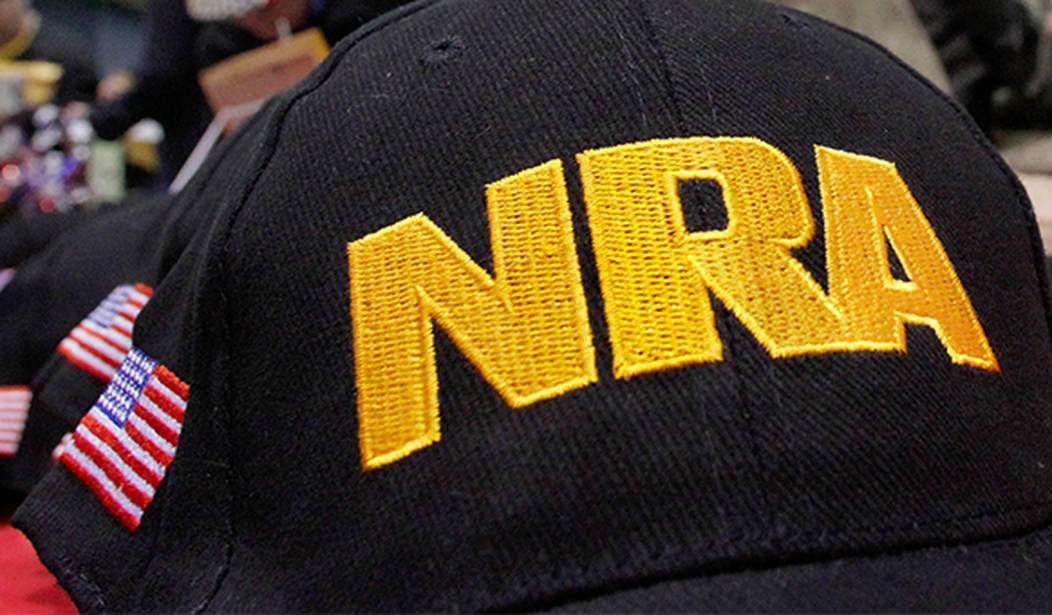The National Rifle Association has been around for almost 150 years but it looks like it’s now facing a complete and total shutdown with the bankruptcy it filed having been dismissed.
According to Stephen Gutowski’s “The Reload,” the NRA’s bankruptcy strategy has failed as a federal judge ruled that the group’s use of bankruptcy was less about financials and more about attempting to avoid government oversight:
Federal Judge Harlin Hale ruled the gun group’s attempt to relocate to Texas in response to litigation by New York Attorney General Letitia James (D.) targeting the group could not go through. Judge Hale agreed with James in her argument the NRA, whose leaders repeatedly publicly touted the financial strength of the organization during the case, was not trying to address legitimate financial concerns. Instead, the judge concluded, the group was inappropriately trying to use the bankruptcy court to avoid government oversight.
“The Court agrees with the NYAG that the NRA is using this bankruptcy case to address a regulatory enforcement problem, not a financial one,” he said in the ruling.
The ruling deals a significant blow to the NRA’s legal strategy for dealing with James’ suit over accusations that NRA leaders, including CEO Wayne LaPierre, diverted tens of millions of dollars from the group for personal use over several decades. It likely ends the attempt to move the venue for hearing James’ claims from New York state court to a federal bankruptcy court in Texas. It also makes her effort to completely shut down the group, a political opponent she described as a “terrorist organization” during her campaign for AG, more likely to succeed.
This won’t come as much of a surprise for many as the strategy, concocted by Wayne LaPierre and outside counsel Bill Brewer was considered something of a “hail mary” from the beginning. Hale wrote in his ruling that the NRA’s attempts at dodging oversight, and its “inadequate governance and internal controls” were apparent according to The Reload:
“The mission and function of the NRA is focused on gun safety, and the NRA asserts it is ‘the nation’s foremost defender’ of the Second Amendment of the United States Constitution,” he wrote in his ruling. “In recent years, however, it has become apparent that the NRA was suffering from inadequate governance and internal controls.”
Judge Hale pointed to numerous specific concerns with the NRA’s case.
“There are several aspects of this case that still trouble the Court, including the manner and secrecy in which authority to file the case was obtained in the first place, the related lack of express disclosure of the intended Chapter 11 case to the board of directors and most of the elected officers, the ability of the debtor to pay its debts, and the primary legal problem of the debtor being a state regulatory action,” he said.
Regardless, LaPierre released a statement signaling that the group isn’t done.
“We remain an independent organization that can chart its own course, even as we remain in New York to confront our adversaries,” he said. “The NRA will keep fighting, as we’ve done for over 150 years.”
While Hale did leave open the possibility that the NRA could refile the case, he made it clear that doing so would come with higher stakes, including a court-appointed official taking it over.
“Should the NRA file a new bankruptcy case, this Court would immediately take up some of its concerns about disclosure, transparency, secrecy, conflicts of interest of officers and litigation counsel, and the unusual involvement of litigation counsel in the affairs of the NRA, which could cause the appointment of a trustee out of a concern that the NRA could not fulfill the fiduciary duty required by the Bankruptcy Code for a debtor in possession,” he said.
The NRA filed bankruptcy in January under the direction of LaPierre without the knowledge of several NRA board directors.
“What concerns the Court most though is the surreptitious manner in which Mr. LaPierre obtained and exercised authority to file bankruptcy for the NRA. Excluding so many people from the process of deciding to file for bankruptcy, including the vast majority of the board of directors, the chief financial officer, and the general counsel, is nothing less than shocking,” wrote Hale.
RedState will stay on top of the story.














Join the conversation as a VIP Member